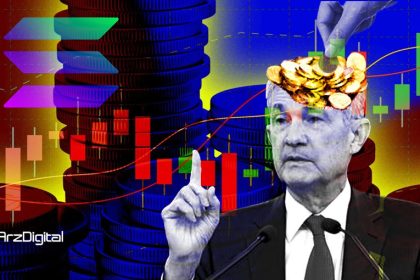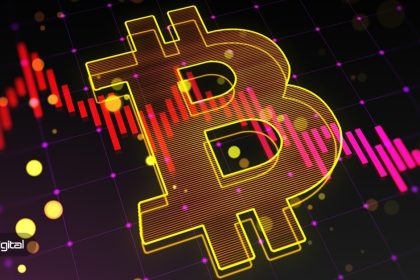When you enter financial markets, especially digital currencies, you may face several types of transactions and ways to earn money. The space of digital currencies is one of the most dynamic environments for making money, one of these ways is to do spot transactions or instant transactions (cash markets). Of course, cash markets are not limited to the digital currency market, and different currency pairs, company shares, and commodities can also be traded in spot markets.
Spot trading has many advantages over other methods; Among other things: trading in cash markets is much less risky and transactions in this type of market are done in cash and immediate delivery.
In this article, we will discuss the concept of spot and its analysis. Join us as we explore why the spot concept is so important and how it helps create opportunities and reduce risk in financial transactions.
What is spot trading?
Spot trading Or Spot trading (Spot Trading) that deal instantaneous Or cash It is also called a type of transaction that is done according to the current price. In the spot transaction, you pay the fee at the same moment and receive the digital currency or any other desired asset. So the spot trade vs Future contracts (Futures) and the biggest difference is that from lever There is no news.
The main difference between spot contracts and futures contracts is the time value of the payment, which determines the time credits and interest rate used in futures transactions. Also, you cannot use leverage in spot trading. For example: if you want to buy bitcoins, the requested amount will be sent to you without applying leverage.
The concept of spot chest and spot market is usually considered in connection with pricing in the market of currency pairs, digital currencies and the market of various commodities, including: oil, agricultural products, etc. The reason for this is that in futures transactions, usually the price based on the spot value rate of commodities is considered as one of the main factors in determining the price of futures transactions.
Also, the spot price can be determined by daily changes in supply and demand, the risk-free rate of return for commodity holders, and storage costs. In other words, a futures contract with a longer expiration date may require a more expensive storage fee than a contract with a closer expiration date.
In this way, cash markets can operate through exchanges and transactions can be done in any place where the necessary conditions for the transaction are available.
What is the spot market in digital currencies?
The spot or cash market in the world of digital currencies is defined as an environment where digital assets are traded and settled instantly. In this market, trading takes place in real time and traders buy and sell digital currencies such as Bitcoin.
In the digital currency spot market, sellers and buyers are present and use order books to register their transactions. Sellers intend to sell their assets by specifying a specific selling price or order; And the buyers also announce the purchase for each digital token with their bid price or with a specific order (register the digital currency order). The bid price is the highest price that the buyer will pay for the purchase.
Orderbook has two sides: one side for buyers and the other side for sellers. The order book records offers and requests. For example, in spot trading, if a buyer places a request to buy Bitcoin, the transaction is instantly sent to Bids. When a seller with similar features is selling from the cryptocurrency trading platform, the transaction is automatically executed.
As a result, the existence of a cash market in digital currencies allows traders to easily and quickly conduct their transactions and respond to rate reactions and price changes.
How does the spot market work?
In the continuation of what spot is, we will discuss how this type of transaction works. Spot markets are one of the most important components of financial markets that work on a spot and cash basis. In fact, the buyer and seller immediately agree with each other and complete the transaction.
To understand this better, consider an example. Tehran Stock Exchange is also a spot or cash market where traders can buy and sell the shares of their desired company immediately and in cash.
In the case of spot markets, the settlement of the transaction usually takes place on a certain date, on which date the asset and tradable product are delivered to the buyer. In futures transactions, settlement is usually postponed to the future. But as we said, in spot transactions, the settlement is done instantly.
Considering the importance of spot markets in trading and the financial world, analyzing and having a deep understanding of the performance and role of these markets is very vital and important for investors and traders.
What are the key principles of spot trading?
- Instant settlement: One of the basic principles of spot transactions is immediate settlement; This means that the transactions are done immediately and in cash. The asset is delivered to the buyer instantly.
- spot price: The price of the spot transaction is determined based on the current exchange rate (Spot Rate). The spot rate is formed by supply and demand in the market and is considered as the current price of the asset.
- Low risk transaction: Spot acts as a low-risk transaction for investors, allowing them to react quickly to changes in cash transactions and take advantage of profitable opportunities.
- risk management: Through spot trading, investors can reduce the risks associated with price fluctuations. With instant settlement and cash transactions, there is less risk for fluctuations and sudden changes in price.
- transparency: Spot markets usually have high transparency despite instant settlement and spot price. Available information is quickly transmitted to all participants and reasonable prices can be created.
What are the most important effects of spot trading?
- Impact on other financial markets: Spot markets have a great influence on other financial markets, especially the digital currency market. Changes in spot exchange rates directly have ripple effects in other financial markets.
- Historical process: The spot price is influenced by historical factors and changes in the market. Price history and spot price charts are very important for analyzing past effects and predicting future behavior.
- Rapid change management: Spot markets usually respond to rapid changes in prices and rates. Investors must have the ability to manage changes and react in time.
All in all, spot conundrums play an important role in the financial world, and the underlying concepts and their effects on financial markets are vital for investors and traders. Taking advantage of these principles and interaction in the spot market can help investors to take advantage of opportunities and reduce risks.
Types of spot trading market
The main types of spot trading market include the following:
- Spot Forex currency market
- Spot stock market
- Goods spot market
- Digital currency spot market
Spot Forex currency market: In spot forex currency markets, different currency pairs are traded at spot rates and it is known as the largest spot trading market in the world. Among the common trades in this market is the trade of the US dollar (USD) with other currencies, such as: the euro (EUR) or the pound (GBP).
Spot stock market: In stock markets, company shares are bought in cash. This market allows investors and stock traders to buy and sell stocks in real time.
Goods spot market: This market is known for trading various commodities, such as: crude oil, gold, silver and agricultural products. Spot commodity transactions are based on spot rates.
Digital currency spot market: In the spot crypto market, digital currencies such as Bitcoin and Ethereum are bought and sold at the spot rate.
The spot trading market plays a fundamental role in the trading of assets and the formation of exchange rates, stocks and digital currencies. Traders and investors use this market to trade their assets in real time without delay to respond to the effects of rates and market changes.
The most important futures and spot markets
Currently, the most important futures and spot markets are:
- New York Stock Exchange (NYSE): In this exchange, traders buy and sell stocks for immediate delivery. The NYSE is actually a cash market dedicated to the instant trading of assets.
- Chicago Mercantile Exchange (CME): This stock exchange is an example of a market where traders buy and sell futures contracts. CME is a futures market that trades assets in the future (not in the moment).
- spot market and over-the-counter (OTC) market: Transactions that take place directly between buyers and sellers and over the counter (OTC) are called over-the-counter markets. In these markets, exchanges do not play an intermediary role and transactions between buyers and sellers are done directly. The currency pair market (forex market) is one of the largest over-the-counter markets in the world with an average daily turnover of more than 5 trillion dollars.

In OTC transactions, the price may be determined based on the current or future rates, but they are not standardized compared to other trading markets. Therefore, the terms of the transaction depend on the agreement of the buyer or seller. Usually, stock transactions in the over-the-counter market are done instantaneously; While futures are usually not instantaneous.
The spot and over-the-counter markets each have their own characteristics and uses with a large impact on the global economy. Hence, the importance of their differences and correspondences is very important for investors and traders.
What are the advantages and disadvantages of cash or spot transactions; Differences with futures markets
Property ownership: When you buy an asset at the spot price, you actually become the owner of that asset at that moment. For example, when you buy a bitcoin, the same amount is available in your wallet. In this way, you are allowed to keep the desired asset and sell it to anyone you like or transfer it to offline storage. In contrast, when you trade Bitcoin in the futures market, you are only trading its dollar amount and not the Bitcoin itself.
Multipurpose use: Cash trading allows traders to use their digital currencies to perform additional activities. Additional activities include online payments, investment and passive income. In the futures market, you can only trade your digital currencies with the desired leverage, you cannot make long-term investments in this market.
Risk reduction: Spot cash transactions are significantly less risky than margin transactions. With cash trading, you don’t have to worry about losing money due to price changes and paying on margin. Risks such as: involving more money or losing more money than the amount in the account do not threaten the trader.
Lower efficiency: The biggest drawback of spot trading is that it doesn’t provide the nice boost of returns and profits that leverage does in margin trading. Due to the lack of leverage, the profit margin in the cash market is lower than the margin trading profit. Deciding between spot cash trading and margin trading should be done according to your investment goals and strategies.
Conclusion
In this article, we examined the concept of spot. We found that spot transactions are transactions that take place in cash and without leverage; Cash trading is the opposite of futures trading.
Spot is less risky than the futures market and other markets. Also, in instant transactions, the user receives the asset in real form. That is, if you buy a bitcoin in the spot market, you will receive a bitcoin at the exact moment.
RCO NEWS

















